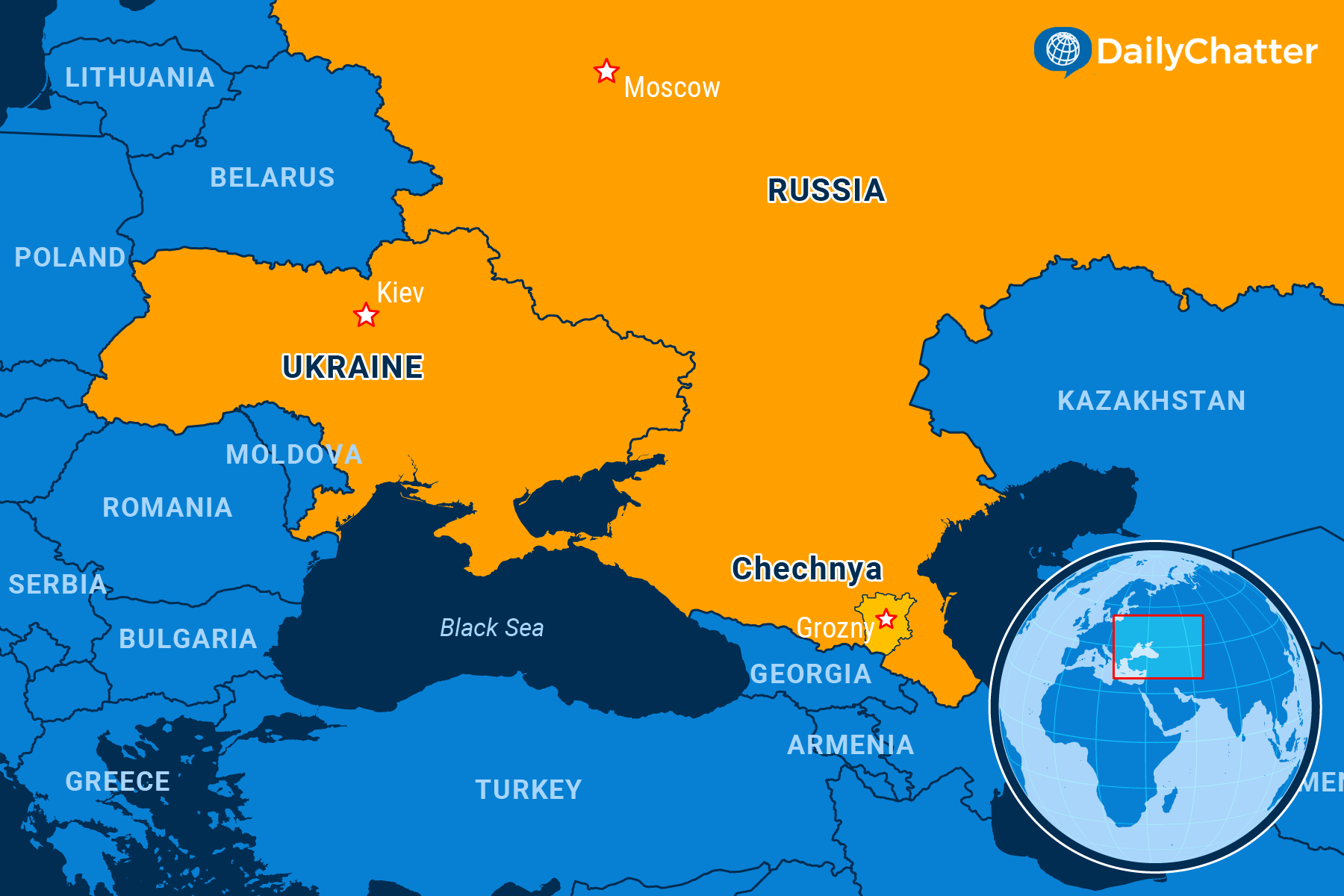Need to Know
September 26, 2022The Dangers of Desperation
RussiaUkraine

|
Listen to Today's Edition
|
The once-vaunted, now-demoralized Russian military could be on the brink of collapse – a retired British Air Marshal put the odds at 35 percent in a recent interview with Sky News.
By now, seven months after the invasion of Ukraine, this mighty military was to have overthrown the government of Ukrainian President Volodymyr Zelenskyy and “cleanse the country of Nazis.” But the Russians’ lightning-quick strike on the capital of Kyiv failed in what the Associated Press described as a “defeat for the ages,” and they scaled back the invasion to focus on the south and east.
After withdrawing from Kyiv, the military held firm for a while in eastern Ukraine where they had previously established separatist regions or puppet states years ago, as Politico wrote, even as Ukraine managed to reclaim a large swathe of territory in Russia’s supposed strongholds in the east, National Public Radio reported.
As a consequence, four separatist regions – Donetsk, Luhansk, Zaporizhzhia and Kherson – began holding referendums over the weekend to join Russia, sometimes forcing voters at gunpoint to go to the polls, to give Russia the excuse that it is defending its own territory, the Washington Post reported. The outcomes of the votes are a foregone conclusion, as is the switching of tactics the sign of a desperate dictator, the newspaper added.
“These are the hypocritical, backpedaling words of a dictator who badly miscalculated by seeking to destroy Ukraine’s territorial integrity, and who finds himself in need of a new rationale for war,” it wrote, referring to a speech Wednesday by Russian President Vladimir Putin, explaining the referendums, the instituting of a partial draft and the penalties for avoiding military service.
Putin has boxed himself into a corner; he needs more soldiers and equipment, but asking for them highlights his failure to protect the ones he has already deployed. Meanwhile, military experts doubt it will make a difference in the war.
It did, however, make a difference to the imposed peace within Russia itself, the Canadian Broadcasting Company wrote, noting the draft’s unpopularity among ordinary Russians. As men began receiving call-up orders, protests erupted around the country on Wednesday and again over the weekend with more than 2,000 people being arrested because protests are illegal. Meanwhile, Russians scrambled to find flights out of the country as tickets quickly sold out, and “how to leave Russia” searches began spiking on Google, Business Insider reported.
Meanwhile, it’s no secret to many Russians what the 300,000 being called up will face.
Letters left behind by Russian soldiers detailed their demoralization and sorrow, the Washington Post wrote, explaining also why some soldiers are refusing to fight after “humiliating losses on the battlefield,” according to the Daily Beast. This could explain the fast pace of Ukrainians’ advances against Russian troops, added the Kyiv Post, a Ukraine-based English-language newspaper.
Meanwhile, at the United Nations this week, Zelenskyy mocked Putin and demanded a peace plan on Ukraine’s terms, maybe following a script that bloodying the bully’s nose reduces his menacing aura. “A crime has been committed against Ukraine, and we demand punishment,” Zelenskyy told delegates at the UN in a virtual address in his trademark combat fatigues, CNN reported.
Zelenskyy also called for the UN to strip Russia of its veto power in the Security Council, a move that would pave the way for significant action in the council that presumably only China could stop. China is the only non-Western, veto-wielding Security Council member. The other three veto-power countries are the US, Britain and France.
But Chinese leaders are reportedly not very happy with Russia, either. As Newsweek wrote, Chinese President Xi Jinping is not sending weapons nor making public proclamations in support of the war, a stunning silence for two ostensible allies. And Xi has recently expressed concerns over the war. Putin acknowledged as much recently.
Meanwhile, India, another ally, also began criticizing Putin and the war recently, the Economist noted. And old Russia stalwart, Serbia, said it would not accept the results of referendums in eastern Ukraine. That’s even though Serbia signed a cooperation agreement with Russia last week.
The Atlantic Council believes that Putin’s empire is collapsing just like those of the Tsar and the Communists did in the last century.
Maybe so. Unfortunately, there will be a lot more pain in Ukraine, Russia and around the world before that happens.
Not already a subscriber?
If you would like to receive DailyChatter directly to your inbox each morning, subscribe below with a free two-week trial.
Support journalism that’s independent, non-partisan, and fair.
If you are a student or faculty with a valid school email, you can sign up for a FREE student subscription or faculty subscription.
Questions? Write to us at hello@dailychatter.com.

